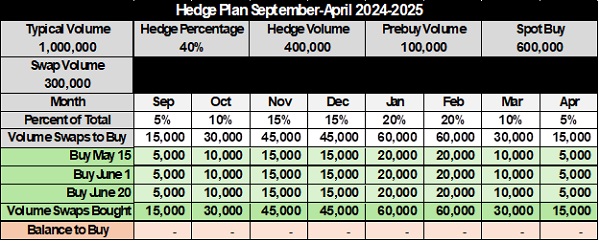Domestic energy policy sparks most contentious moment of debates
President Barack Obama and former Massachusetts Gov. Mitt Romney didn’t dive much into energy policy during their third presidential debate Oct. 22 in Boca Raton, Fla., but the candidates spent a considerable chunk of their second debate Oct. 16 going back and forth on the topic.
In fact, arguably the most contentious moment of all three debates occurred in that second presidential debate, following a question from audience member Phillip Tricolla on energy.
Tricolla’s question to Obama was this: Your energy secretary, Steven Chu, has now been on the record three times stating it’s not policy of his department to help lower gas prices. Do you agree with Secretary Chu that this is not the job of the Energy Department?
Obama never answered the question about Chu and his responsibility toward gas prices directly, but the president did say domestic oil production is at its highest level in 16 years. He added that natural gas production is at its highest level in decades.
Obama also weaved clean energies like biofuels, solar and wind into the discussion, making a point about having a balanced domestic energy approach that can fuel vehicles and other applications in the United States in the future.
Romney followed Obama’s point about domestic oil production by agreeing oil production overall in the United States is up, but that the Obama administration cannot be credited for the increase because production on government-controlled lands is down 14 percent.
“As a matter of fact, oil production is down 14 percent this year on federal land, and gas production was down 9 percent,” Romney said. “Why? Because the president cut in half the number of licenses and permits for drilling on federal lands and in federal waters.”
Obama countered Romney’s point, arguing that his administration is drilling more on federal lands than during President George W. Bush’s administration. It was Obama’s comments about drilling on federal lands with which Romney took issue. The comments also led to arguably the most heated moment of the three debates between the candidates.
“In the last four years, you cut permits and licenses on federal land and federal waters in half,” Romney told Obama at one point.
“Not true, Gov. Romney,” Obama responded.
Romney, standing just a few feet from Obama in the debate circle, insisted Obama divulge a number regarding the permits and licenses Romney claimed he’s cut during his presidency. When Romney didn’t get the answer he expected immediately, he again demanded an answer from Obama regarding the number of permits and licenses the president allegedly cut.
In all, Romney demanded a number from Obama at least four times during the exchange. Once the two settled down and ceased talking over each other, Obama gave an answer.
“Here’s what happened,” Obama said. “You had a whole bunch of oil companies who had leases on public lands that they weren’t using. So what we said was you can’t just sit on this for 10, 20, 30 years, decide when you want to drill, when you want to produce, when it’s most profitable for you. These are public lands. So if you want to drill on public lands, you use it or you lose it.”
Still unsatisfied, Romney again asked about oil production on federal lands.
“Production is up,” Obama said.
“[Production] is down,” Romney fired back.
“No it isn’t,” the president responded.
“Production on government land of oil is down 14 percent,” Romney countered.
“It’s just not true,” Obama said.
Eventually, near the end of the energy discussion, moderator Candy Crowley circled back to Tricolla’s original question about gas prices. She asked the president to address $4-per-gallon gasoline and Romney’s claim that if the administration’s energy policy were working, the price of gasoline would not be about $4 per gallon.
“When I took office, the price of gasoline was $1.80, $1.86,” Obama said. “Why is that? Because the economy was on the verge of collapse, because we were about to go through the worst recession since the Great Depression, as a consequence of the same policies that Gov. Romney’s now promoting.”
Obama added that it is conceivable a Romney administration could bring gas prices down but that the policies Romney would likely use to lower prices could put the U.S. “back in that same [economic] mess.” – Kevin Yanik, Managing Editor
















